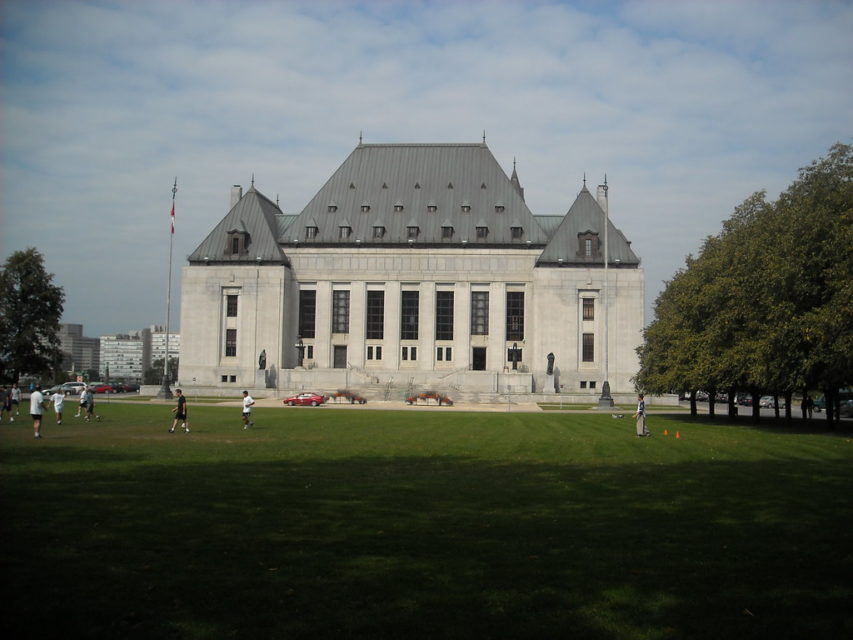John Carpay explains why the Supreme Court’s junket in September isn’t a good idea:

“Supreme Court of Canada, Ottawa”by daniel0685 is licensed under CC BY 2.0
While hearing two cases in Winnipeg rather than Ottawa is a friendly gesture, the Court’s choice of which groups to meet with – and not meet with – in Winnipeg is necessarily a political choice. If you thought the Court would meet with Ukrainians and Germans (Manitoba’s two largest non-English ethnic communities), prisoners, seniors, taxpayer groups and English language rights activists opposed to official bilingualism, you would be wrong.
In fact, the Court has announced that it will meet with “indigenous communities, the francophone community, the legal community, and students.” What message does this send to the Canadian public, which wants an impartial court deciding on aboriginal claims? What does meeting with the francophone community in Winnipeg say in relation to the Court hearing a case about minority language educational rights? And what if university tuition payments were at the heart of a case that came before the SCC, with its Justices having met only with students, but not with taxpayers?
As Canadians, the Supreme Court judges already interact with the public in their private lives, in Ottawa and elsewhere. One could reasonably assume that the nine lawyers appointed to this Court each meet individually with various people regularly, on the basis of friendship, shared interests, or family obligations. The people with whom any one judge meets over the course of a year would likely not form a perfect microcosm of Canadian society, in terms of race, religion, political views, income, and level of education. This is to be expected, and there is nothing wrong with it, because the personal connections formed by any one judge are not publicly endorsed by the Court. Not so for these meetings of “the Court” as a whole in Winnipeg, which is what makes the Court’s exclusion of many groups worrisome.
Chief Justice Wagner would no doubt respond to the above by saying that he and his colleagues will do their very best to decide all cases impartially, regardless of which groups they chose to meet with (and not meet with) in Winnipeg. And he would be right.
But that doesn’t solve the problem. The Court has made a political decision to meet with francophones, not English language rights activists; lawyers not prisoners; students not seniors; aboriginals not Germans or Ukrainians. In view of the ancient and centrally important legal maxim, “Not only must justice be done; justice must be seen to be done,” the Court should not be making these political decisions in the first place, in order to avoid even the appearance of possible bias.
It’s bad enough that the Prime Minister is seen to be putting a thumb on the scales of justice, but much worse if the highest court in the land is perceived to be doing the same thing.



